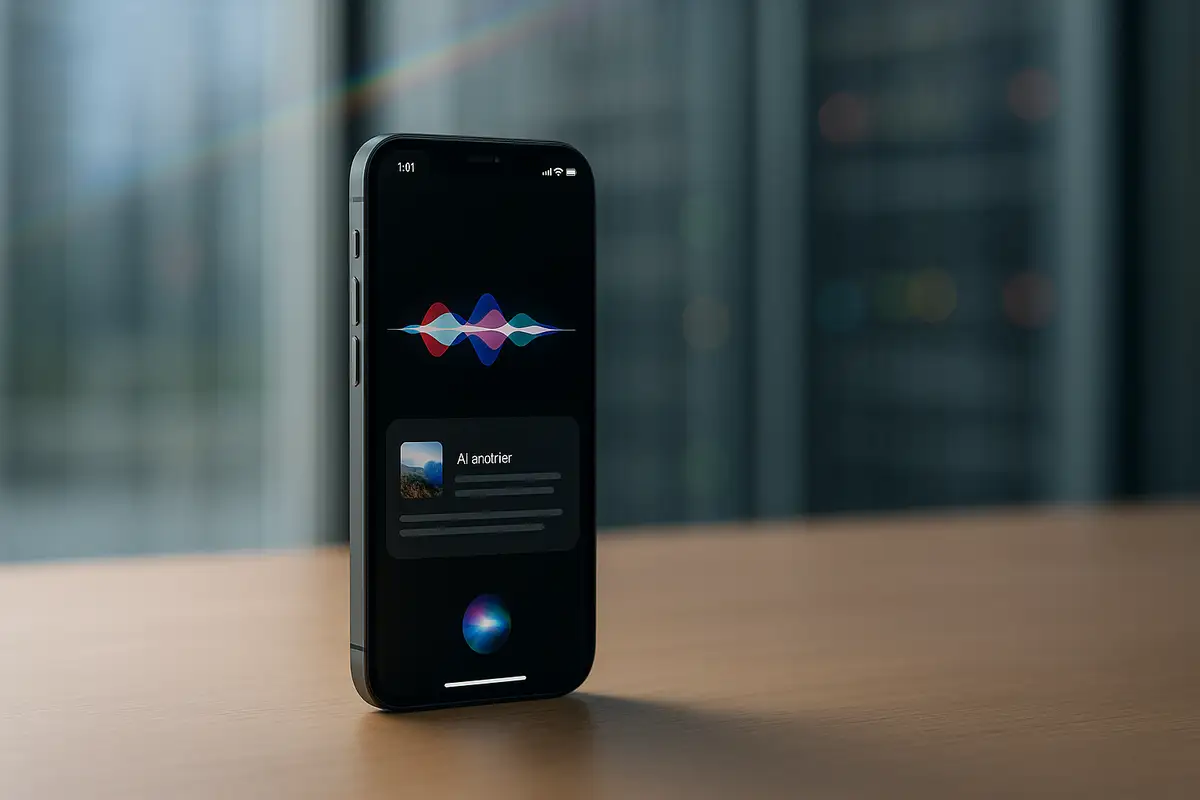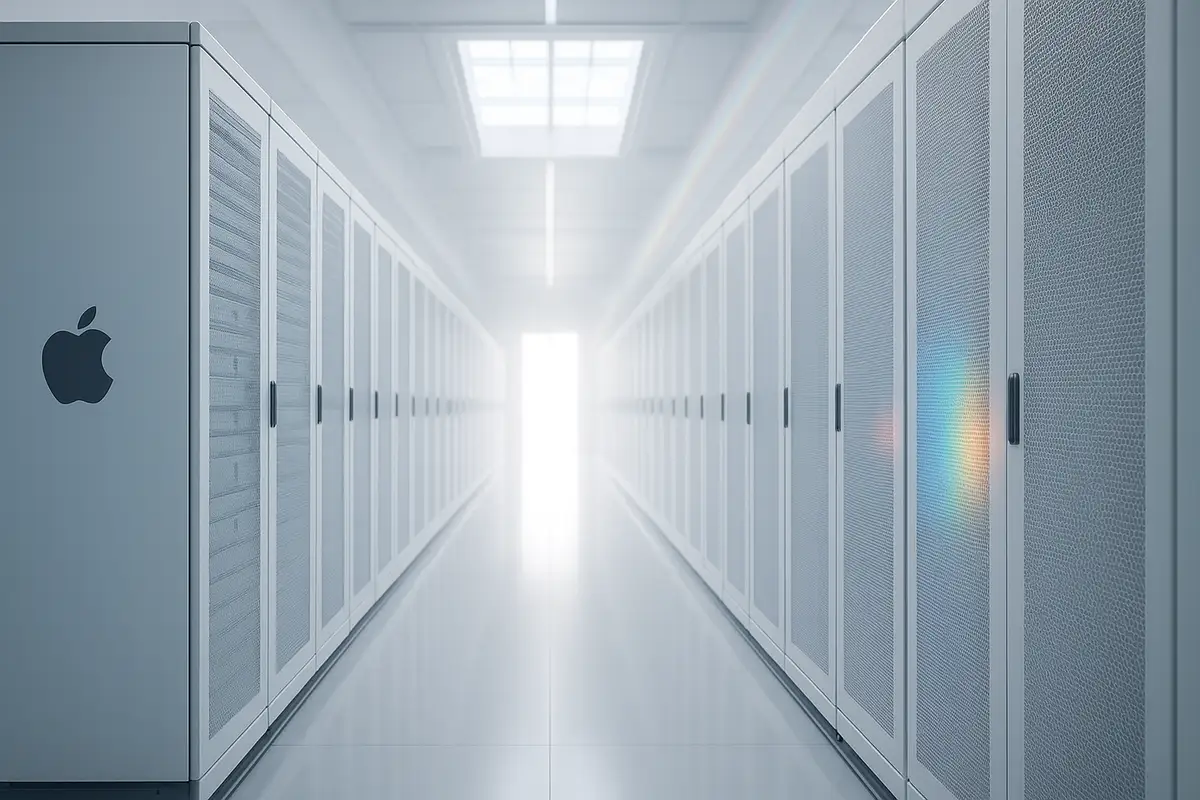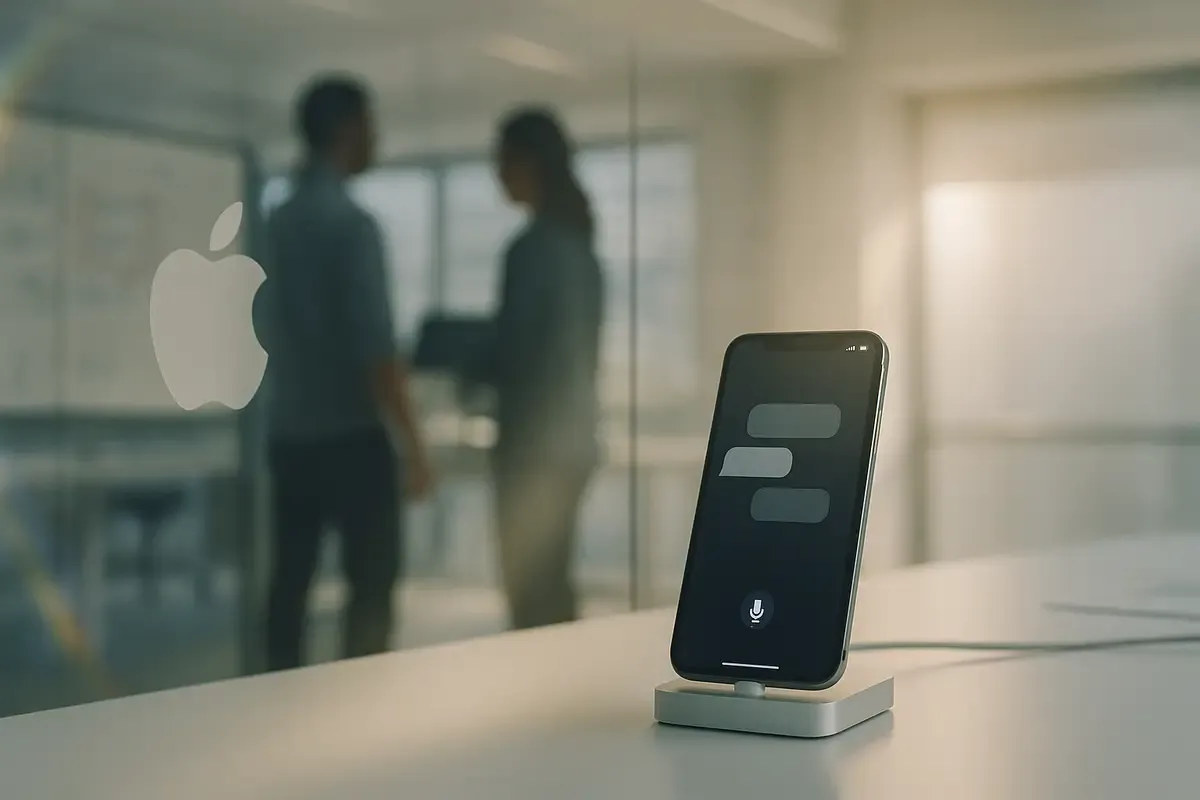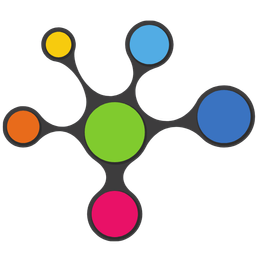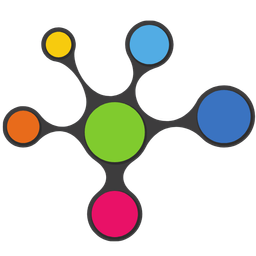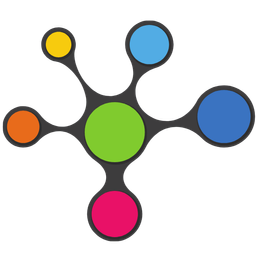💡 TL;DR - The 30 Seconds Version
🤖 Apple built an internal ChatGPT-style app called "Veritas" to test features for Siri's overhaul, targeting March 2026 launch after repeated delays.
👥 Leadership shake-up continues as Robby Walker leaves in October 2025, following John Giannandrea's earlier sidelining from AI development.
🔧 The app runs on "Linwood" system that blends Apple's foundation models with third-party AI, suggesting internal capabilities aren't sufficient.
🤝 Apple explores Google Gemini partnership for custom AI variant while ChatGPT processes 2.5 billion daily prompts from live users.
⚖️ Company faces strategic tension between maintaining integrated approach and matching competitors who collect behavioral data at massive scale.
🚀 Success or failure of March 2026 launch will determine whether Apple loses control of user interface to external AI assistants.
Apple built an internal, ChatGPT-style iPhone app—code-named Veritas—to shake down the next version of Siri. The tool lets employees try long-form chats, query personal data like emails and playlists, and trigger app actions before any public release, according to Bloomberg’s Veritas test-app report.
What’s actually new
Veritas isn’t a consumer product. It’s a test bench that finally puts Apple’s still-in-progress assistant into a familiar chat interface with multi-turn memory. Under the hood sits a new system called Linwood, which blends Apple’s own foundation models with a third-party model. That choice signals Apple’s willingness to mix sources if homegrown models can’t yet hit reliability targets.
The timeline matters. After repeated slips, Apple now aims to ship the revamped Siri as early as March 2026. That date reflects both engineering friction and a strategic pause: Apple’s leaders have said they prefer Siri to feel integrated across the OS rather than a “bolt-on chatbot” icon. Veritas lets teams measure whether a chat front end actually improves tasks before committing to it in public.
The evidence behind the pivot
Two threads explain the new urgency. First, leadership changes: in March, Apple moved Siri out of John Giannandrea’s purview and put Vision Products chief Mike Rockwell in charge, with Craig Federighi overseeing the software push. Then, this month, longtime Siri leader Robby Walker disclosed his planned October exit. Both moves underline how seriously Apple treats the miss.
Second, supplier hedging: Apple has held talks across the model landscape—OpenAI and Anthropic earlier this year, and now Google about a custom Gemini variant to run on Apple’s servers. Whatever ships is likely to be a hybrid: Apple models where privacy and on-device control are paramount, and a vetted partner model for heavy lifting.
Integration vs. parity
Apple’s bar is higher than “good chatbot.” Siri must reason well and act with system-level authority—open an app, edit a photo, file an email, respect Focus modes, and understand what’s on-screen—without sending sensitive context where it doesn’t belong. That’s harder than a general-purpose web chat. Veritas is Apple’s way to debug the conversational layer while it hardens the action layer.
The approach also exposes a structural disadvantage. Rivals improve fast because they learn from public usage at massive scale. Apple is trying to hit similar reliability with internal testing and carefully staged rollouts. That’s responsible; it’s also slower. The risk is obvious: if users come to depend on other assistants for reasoning while Siri remains the OS concierge, Apple cedes the mindshare layer even as it guards the system layer.
The March problem
“Ship in March” creates pressure from two directions. Apple’s reputation depends on polish and privacy discipline; a flaky, privacy-weird assistant would do real damage. But every quarter without a capable Siri deepens the habit of using competitors’ tools, especially where reasoning and retrieval matter. Executives have called AI the company’s biggest platform shift in decades. The calendar now forces a choice between Apple-grade reliability and market-grade speed.
What to watch
- Scope at launch. Expect staged capabilities: safer, on-device actions first; broader web knowledge and complex planning later. The early emphasis will likely be on tasks where Apple’s privacy posture and UI control are advantages (Photos edits, Mail triage, Reminders, Messages).
- Model mix transparency. If Gemini (or any external model) underpins parts of Siri, Apple will need clear disclosures and easy controls. That’s both a trust issue and a regulatory one.
- Search ambitions. Apple is also building an AI search experience—internally referred to as “Answers” or “World Knowledge Answers”—to sit inside Siri. Veritas is a proving ground for how that interaction should feel.
The competitive read
Framed generously, Veritas is Apple doing Apple things: test, instrument, and integrate before unveiling the user-facing layer. Framed skeptically, it’s proof that Apple still lacks a production-ready conversational core and is shopping for one. Both can be true. The path to a credible Siri likely runs through hybrid models, tight OS hooks, and a slow ratchet of permissions that keeps sensitive context local unless you say otherwise.
The company’s best case is an assistant that quietly outperforms peers on Apple-ish jobs—privacy-sensitive tasks tied to your device and services—while being “good enough” at open-ended reasoning through a partner model. The worst case is a split brain: great at toggles and tasks, middling at thinking, with users bouncing to ChatGPT or Gemini for anything tricky. Apple’s next six months will decide which story sticks.
Limitations and caveats
Most details here come from private briefings and informed reporting, not public documentation. Dates can slip. Partnerships can change. And Apple could still decide that a visible chatbot UI isn’t worth the trade-offs, even if Veritas suggests users like it. That would be consistent with the company’s long-stated preference for ambient, integrated assistance over a chat destination.
Why this matters
- Control of the interface is at stake: If everyday reasoning happens in third-party chats, Apple risks losing the user’s first stop—even on iPhone.
- Privacy meets scale: Apple is trying to reach chatbot-level quality without chatbot-style data harvesting. That’s a high-wire act.
❓ Frequently Asked Questions
Q: What can Veritas do that regular Siri cannot?
A: Veritas supports multi-turn conversations with memory, searches through personal data like emails and playlists, and performs in-app actions like photo editing. Current Siri handles single requests without context from previous conversations, making extended problem-solving impossible.
Q: Why has Apple's Siri overhaul taken so long when ChatGPT already works?
A: Apple's original spring 2024 launch failed after features broke in roughly one-third of tests. The company requires Siri to handle both conversation and system-level device control while maintaining privacy standards—a more complex challenge than web-based chatbots.
Q: Will regular iPhone users ever get access to the Veritas app?
A: Apple has no current plans to release Veritas to consumers. The app exists purely for internal testing. Apple executives prefer an "integrated" assistant experience built into iOS rather than a standalone chatbot app that users must open separately.
Q: How does Apple's approach compare to what Google and OpenAI are doing?
A: ChatGPT processes 2.5 billion daily prompts from live users, while Google Gemini serves 40 million active users. Apple tests internally with employees only, missing the massive behavioral data that competitors use to improve their AI systems rapidly.
Q: What is the "Linwood" system that powers Veritas?
A: Linwood combines Apple's own foundation models with third-party AI technology, likely from Google's Gemini platform. This hybrid approach suggests Apple's internal models aren't powerful enough to handle the March 2026 deadline alone, forcing partnerships with external providers.
